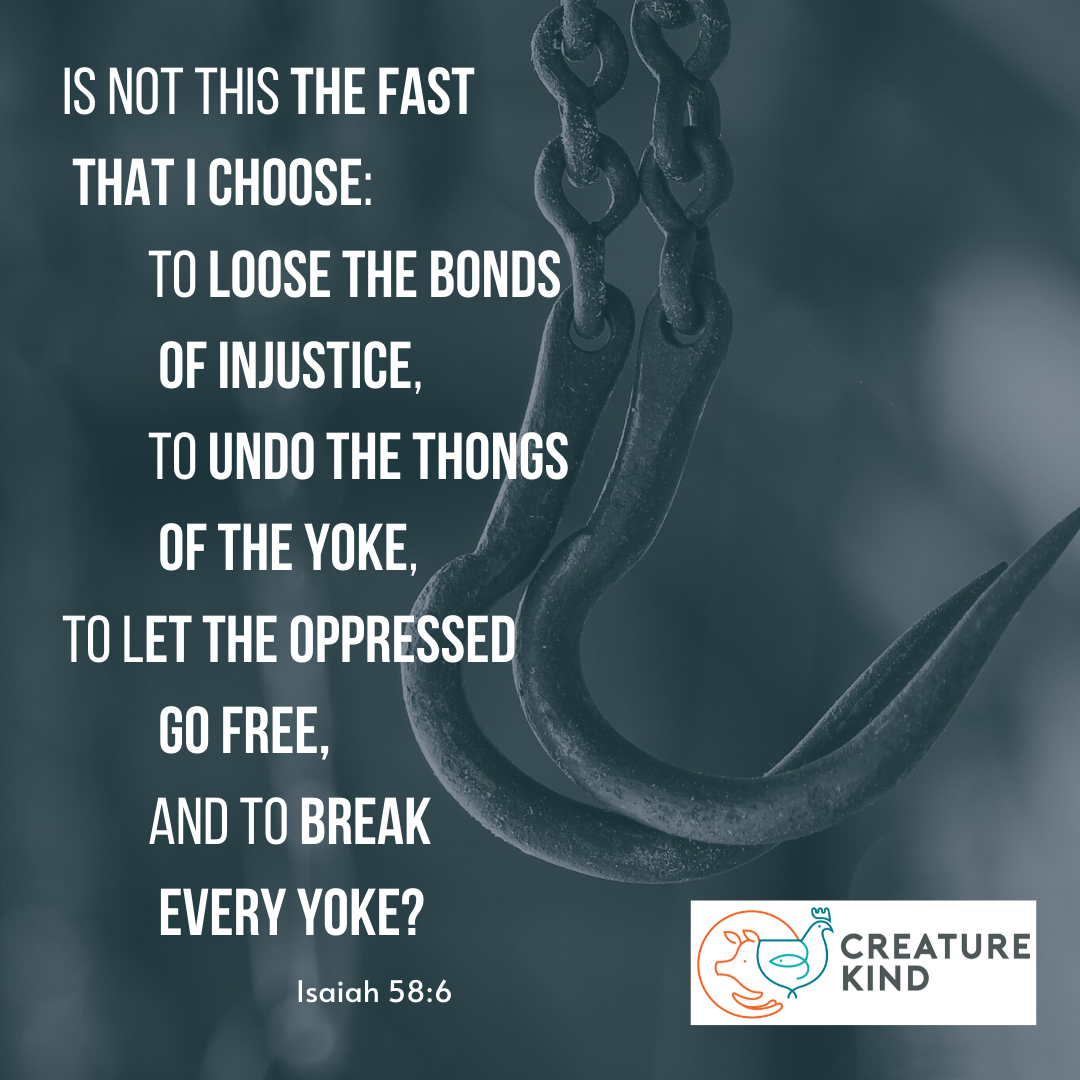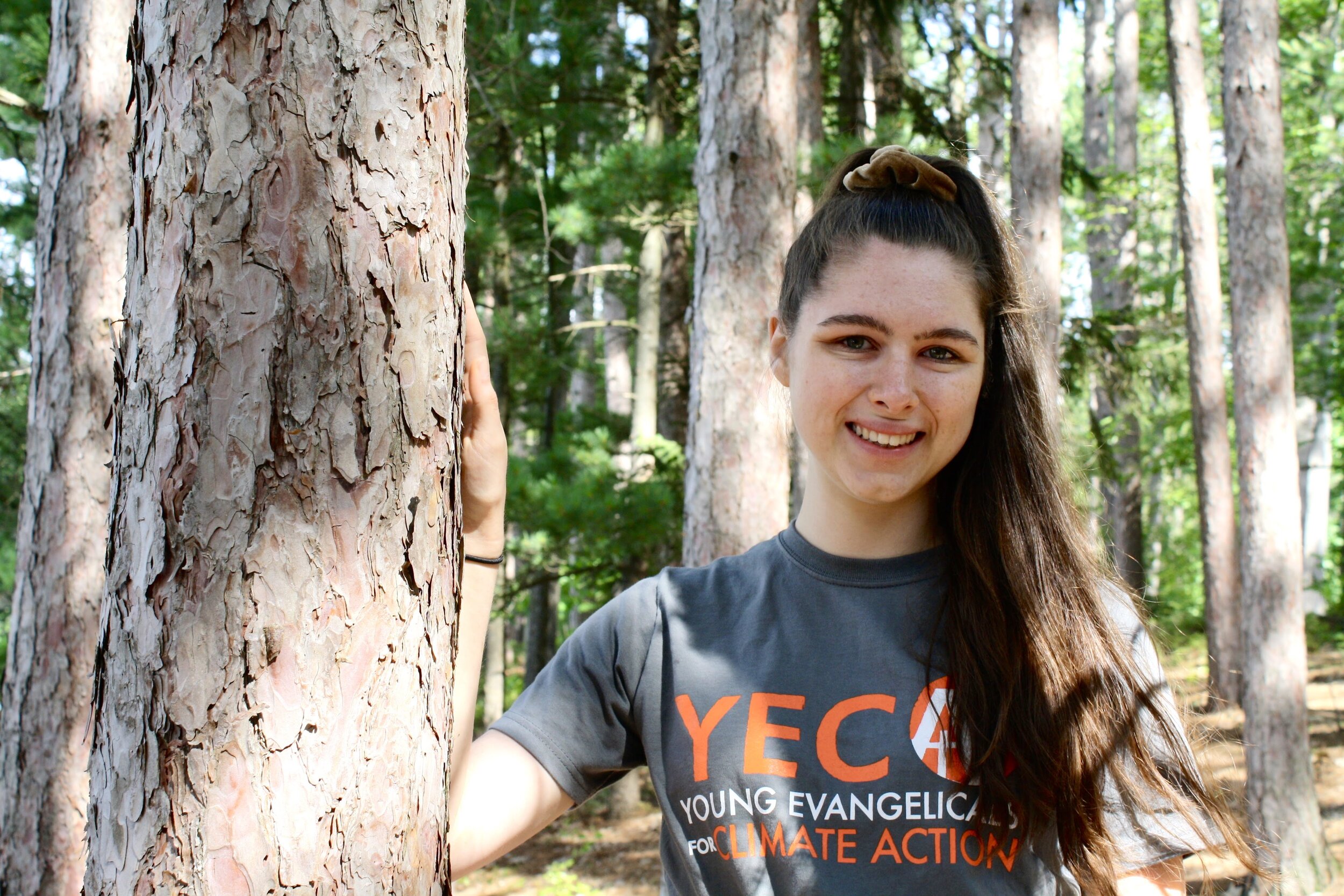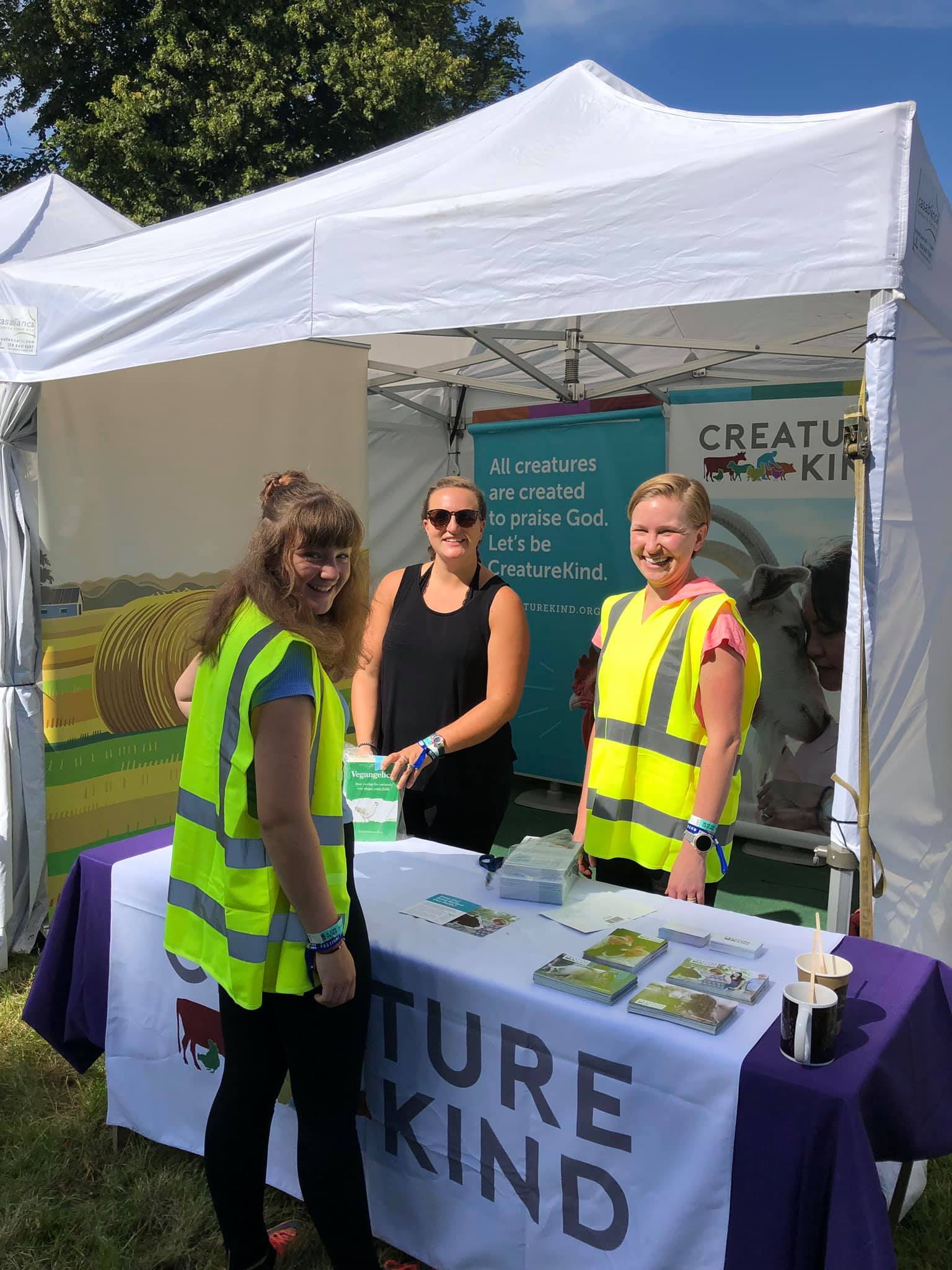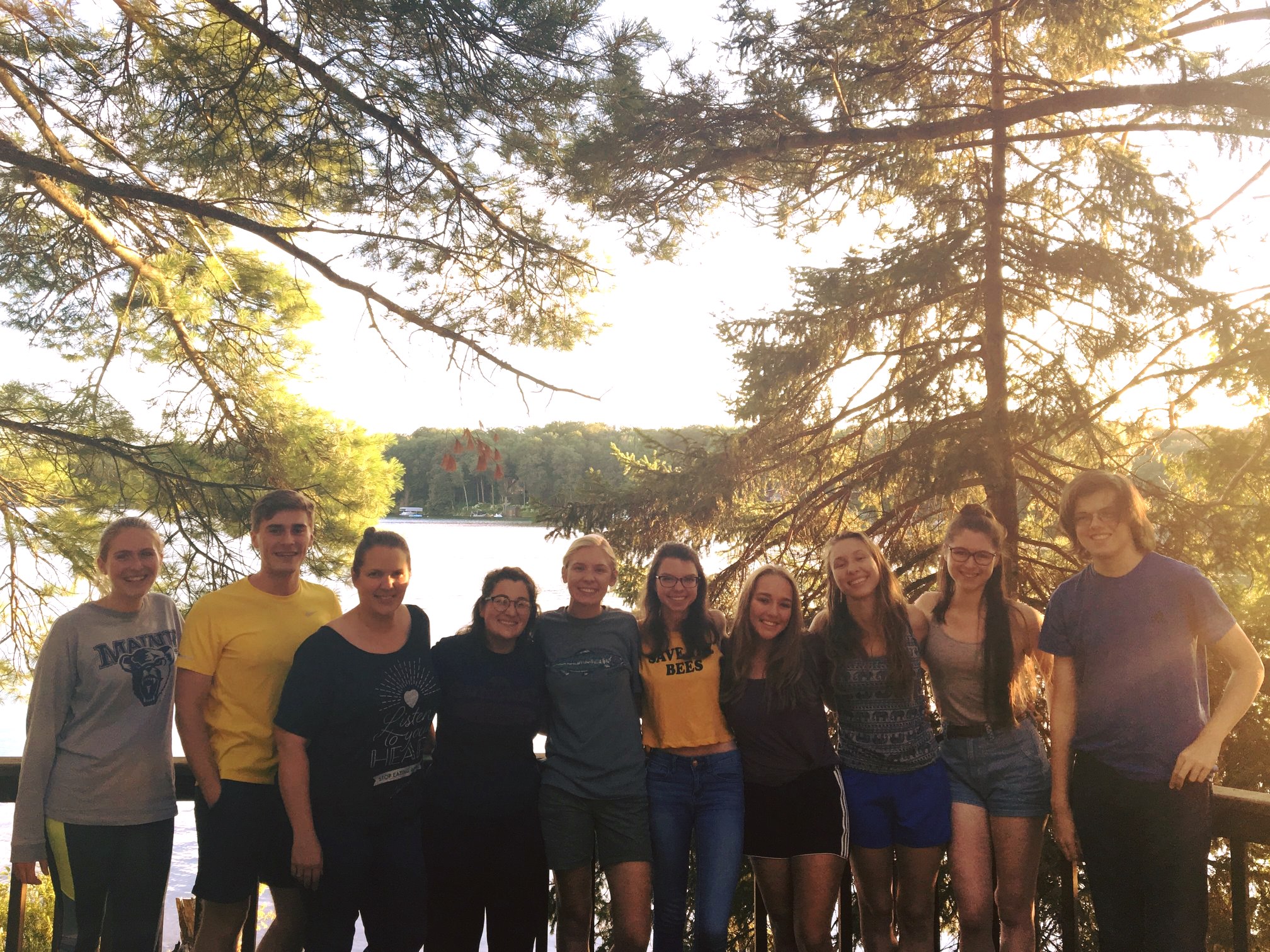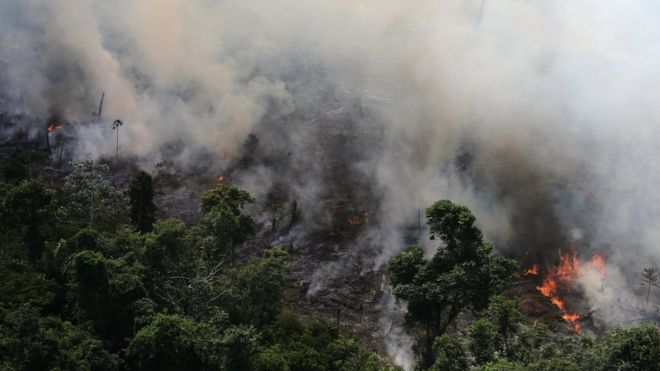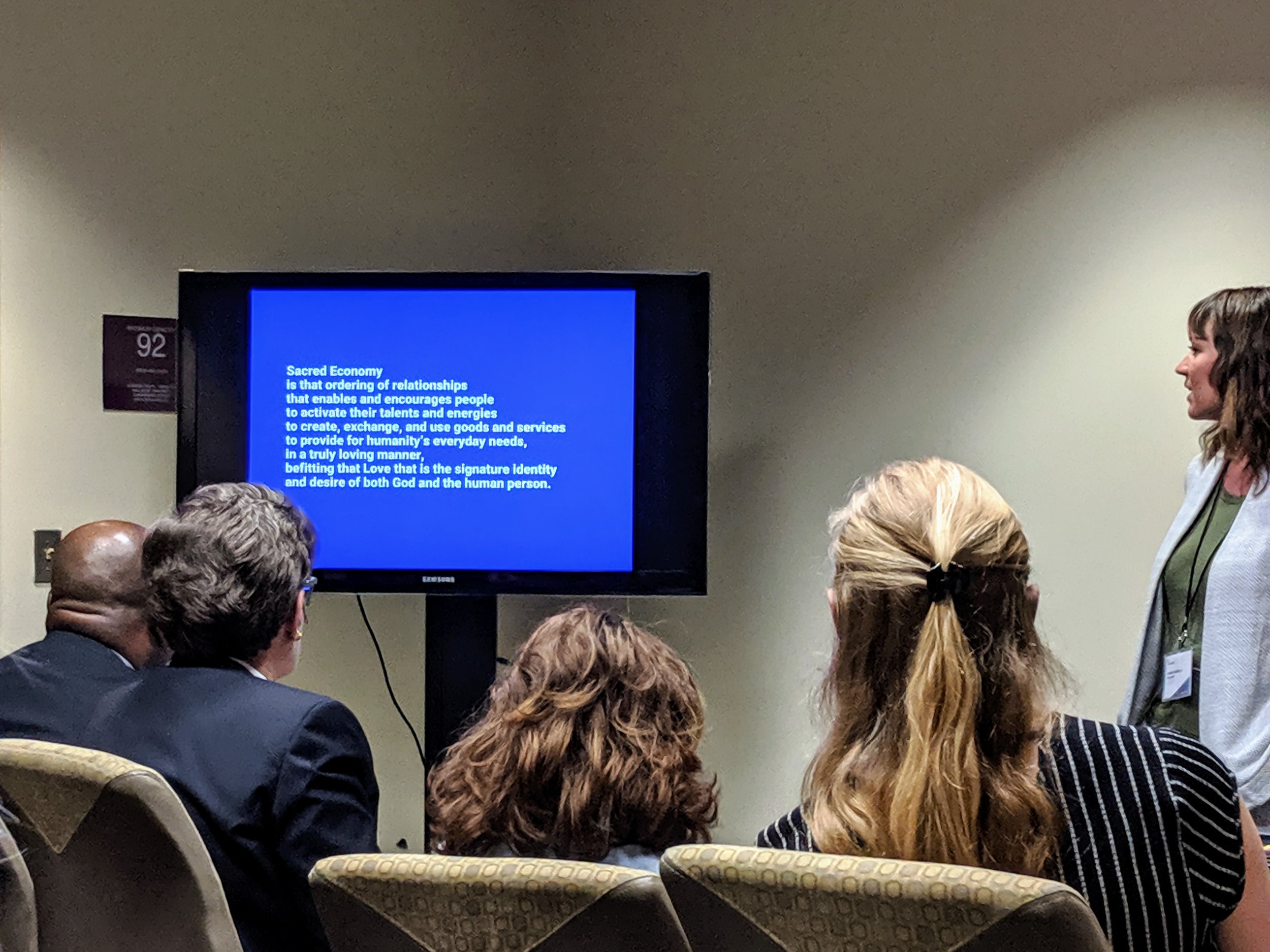by CreatureKind Fellow, Estela Torres
I was raised in a conservative Catholic environment in Monterrey, Mexico.
I felt a deep love for animals from a very young age and was very sensitive to their suffering. Perhaps it was my mother’s stories about her childhood dog, Bobby, that made an impression on me. My mother described Bobby as an intelligent and sensitive being. In fact, my childhood was full of encounters with singular animals, individuals. These encounters were personal and felt far from the impersonal, inferior images of animal species that my church presented to me.
During all these years, I had a hard time understanding people’s indifference towards animals. Stray dogs, whom I saw almost every day in the streets of my native city of Monterrey, were not seen as beings in need of help and compassion. They were ignored as if they were invisible, as if humans did not have any duties towards them. I also have a sad memory of a Catholic school fair where there was a stand called Noah’s Ark. You could win live animals, including chicks and rabbits. I remember children playing with the chicks as if they were balls, throwing them in the air and letting them crash to the ground. I suffered in silence for them. No one seemed to care. No adult was there to tell them to stop or to teach them compassion for living sentient beings.
In high school, I found a book in the library about animal rights, and that’s when it all started for me. I learned that some people cared and were concerned about animals. Soon, all my writing in school was about this topic. At that time, I had a very good friend who was an example of kindness to me. She was a very devout Catholic like her whole family. She was like a role model for me, but her heart and compassion stopped at humans. She even defended bullfighting. What was so confusing was that her arguments were religious.
My love for animals also had to do with God. I prayed for animals, really believing that God cared for them. Nevertheless, I started doubting my beliefs because my church never mentioned animals. Animals were absent in a human-only vision of the world. Moreover, I began to realize that my church thought animals had been placed in an inferior category, which meant we should even keep our distance. Since then, I have carried this question about animals and my faith:
How can my religion, which preaches compassion and kindness, not extend that compassion to animals?
When I moved to Lyon, France, I started taking theology courses at a Catholic university. I did not get a positive response to my question. On the contrary, it seemed “funny” that someone was interested in animals. Some professors or priests said, “our priority is human beings.” In the soteriology course, I was told that salvation was only for human beings. In a class on Genesis, the professor angrily claimed that God had not made a covenant with animals. I tried to give a talk on animals once in my Dominican lay group and again, the reactions were of resistance. Everywhere I tried to talk about Christianity and animals, I got this kind of automatic response: “Yes, but man is the only being that....” “Yes, but man is the only being capable of...,” and “Animals lack or are not capable of…”
I realized that there was something different about how animals were viewed because none of the arguments I was given justified the horrible treatment humans give to animals. I felt very strongly that regardless of whether non-human animals were different or even if they were “inferior” or “irrational” as I was told, nothing gave humans the right to use or kill them. Or, another way of saying this: my fellow Christians did not see the animals. They merely thought about them. Their arguments served as a veil for not looking at the animals.
Another common response and one I wished to explore was the idea that I should prioritize human suffering over animal suffering. I have heard this type of phrase many times while advocating for animals in a Christian context. I never understood the logic. I usually responded, “Why not both?” It seemed to me that this assumption—that we ought to deal with human misery first and then think about the animals—was used to maintain a hierarchy between humans and animals, a manufactured competition. The urge to place human beings as the winners and on the top made no sense to me. As if there were a need to choose, as if there were not enough for everybody. As if God's love were not infinite, as if God were not capable of caring for all of creation.
I sometimes had the impression that Catholics were so preoccupied with human salvation and aspiration to holiness that they forgot to question the real sense of being created in the image of God and what image of God they were expressing. For me, holiness and hell did not go together. We could not be holy to ourselves and other humans while being devils to animals, aspiring to heaven while creating a hell in this life for animals and the earth they inhabit.
In 2013, I found the French translation of Andrew Linzey’s Animal Theology. The following year, I attended the Oxford Center for Animal Ethics Summer School session. The topic was about the ethical adequacy of religious attitudes to animals. It was a very enriching experience, seeing religious people concerned and interested in animals. I felt less lonely meeting other Christians thinking carefully about animals. Around that same time, I was surprised and delighted to discover a French website about animals and Christianity, the Fraternite pour Respect Le Animal (FRA). Today, I am in charge of this organization in France.
Four years later, I attended a conference and heard David Clough speak about CreatureKind and the six-week course for churches. The CreatureKind message resonated very strongly because it answered many of the questions I had been looking for. But, it was the CreatureKind approach that caught my attention and interest. CreatureKind’s inclusive position—of inviting Christians, right where they are, to start conversations about animals and the Christian faith—felt like an excellent first step. I thought that a tool like the six-week course would help Christian animal advocates in France. We are such a minority that this could be of invaluable help. Today I am part of the CreatureKind fellowship and will be soon presenting my project: a French version of the CreatureKind course!
Through the Fellowship, I am learning how justice for animals is part of a larger picture where other social justice issues (racism, speciesism, colonialism, etc.) converge. This has helped me understand more about my country Mexico and where it stands concerning respect for animals, racism, classism, discrimination towards indigenous peoples, etc.
Every country has its particular context. By exploring with CreatureKind how these issues appear in the US context, I see the similarities and the differences concerning my own country Mexico, as well as France, where I live today. So far, my main struggle has been to convince others to include animals into the circle of Christian compassion. I am convinced that we need to advocate for humans, animals, and the environment at the same time.
At first when beginning to explore the intersections of these justice issues, I was worried that this approach would take the attention from animals. I feared that animals could get lost among all the other causes. But it is important to remember that the aim is justice for all, not division or separation. I don’t think anti-racism means to be against white people or feminism is to be against men. So, too, to advocate for animals does not mean to be anti-human.
Reflecting on anti-speciesism as part of the CreatureKind fellowship led me to explore the concept of dualism as explained by the Franciscan friar Richard Rohr. Both of these notions have helped me understand why some humans worry that helping animals means taking away from humans. This is where understanding dualistic thinking can be helpful. Rohr says, “The dualistic mind is essentially binary, either/or thinking, where everything is separated into opposites. It knows, by comparison, opposition, and differentiation. It uses descriptive words like good/evil, pretty/ugly, smart/stupid, not realizing many variations exist between the two ends of each spectrum.” Unless we are conscious of this way of looking at the world, we will not perceive the interconnectedness of everything that exists. In one interview about racism and non-dualistic thinking, Rohr explains how the church has neglected its central work of teaching prayer and contemplation. This allowed the language of institutional religion itself to remain dualistic. A system based in duality can not perceive oneness, while contemplation allows us to see the wholeness of things.
Understanding the way dualistic thinking works helped me see why people were not very receptive to my early attempts to speak on behalf of animals. I realized that this rivalry between humans and animals could maybe be solved by understanding dualism. To end the tug-of-war, we need to stop and ask if we are seeing and responding to particular situations and ideas in a dualistic way. Exploring dualistic thinking has helped me understand these types of ready-made automatic responses or clichés that I have heard so often for so many years. The only way to respond is through a non-dualistic approach, to show that humans, animals, and the natural environment are connected, and that to harm one of these three groups is to harm them all.
Today I am putting into practice CreatureKind’s approach of meeting people where they are to start conversations. I see this as an open, welcoming attitude, a form of invitation without obligation or judgment that makes people more willing to listen and less likely to adopt a defensive mindset. For a while at the beginning of my advocacy work, one of my priorities was to advocate for people to stop eating animals. For me, this was part of a search for coherence. Now, I think that opportunities to meet people are lost when we begin with this approach. Before talking about whether or not to eat animals, we need to reflect on the relationship between our Christian faith and concern for animals. Each Christian and Christian community must discern for themselves whether their faith has something to do with animal welfare. For some animal rights activists, this can sound like treason. I feel more comfortable having an open position towards Christians rather than starting purely from a vegan perspective.
Despite some new elements on animals’ status, such as the intrinsic value of creatures presented in Pope Francis’s encyclical, it is possible to conclude that the situation has not changed. The Catholic religion in the traditional branch remains anthropocentric. If God is the end of the universe, man is an intermediate end and is at the center. Despite this seemingly closed door, there is hope with open windows. Inside the Catholic faith, other traditions, such as the teachings of Saint Francis of Assisi, include animals and all creation into one whole community. We have the example of Saints that had special and close relationships with animals. Today, Catholic theologians are also working on these issues, which shows that it is possible to pursue a positive current, among the anthropocentric ocean, to help change how the Catholic Church sees animal-kind.
Estela Torres is an independent artist, born in Mexico, living in France, who has co-founded the FRA (Christian Organisation for Animal Respect). She studied art at the University of Monterrey and the Glassell School of Art (Houston, TX) and Animals and Society at the University of Rennes 2. Estela’s artwork places concern for animals in the midst of Christian spirituality and culture. Her CreatureKind project will consist of presenting (and translating) the CreatureKind six-week course to Christian churches in France.








